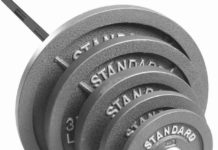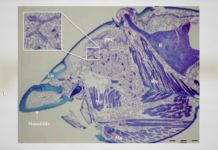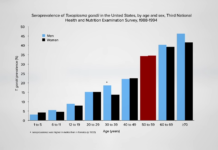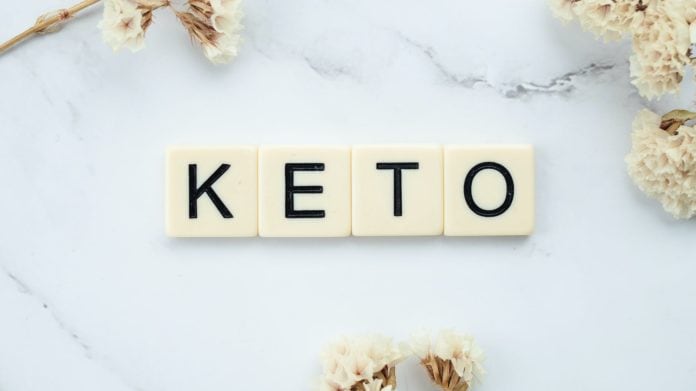Table of Contents
Introduction to the Ketogenic Diet
The ketogenic diet (keto) is a low-carb, high-fat eating plan that has gained popularity in recent years. It is based on a process called ketosis, which is a metabolic state in which your body uses fat as fuel instead of carbohydrates. Keto has been found to have many potential health benefits, such as improved cholesterol, blood sugar control, and weight loss.
The ketogenic diet is primarily composed of healthy fats, moderate amounts of protein, and very few carbohydrates. It is important to note that, on a ketogenic diet, you will need to limit or avoid certain types of foods, such as processed grains, starches, and sugars. Alternatively, there are many nutritious foods you can enjoy, such as vegetables, nuts, and healthy fats.
In this guide, we will cover all of the basics of the ketogenic diet, including what it is, macronutrients, foods to eat and avoid, potential benefits and risks, types of ketogenic diets, meal planning, supplements, and more.
What is a Ketogenic Diet?
A ketogenic diet is an eating approach that focuses on low-carb, high-fat foods. This type of diet has become increasingly popular as a way to lose weight and improve overall health. The idea behind it is that by restricting carbohydrate intake, your body shifts its main source of energy from glucose to fat, which then results in a state of ketosis or “ketone burning”.
A ketogenic diet is not the same as a low-calorie or a low-fat diet, and it does not require counting calories. Rather, this type of diet encourages you to eat a variety of healthy whole foods, such as vegetables, nuts, seeds, meats, fish, and healthy fats, while limiting processed or refined foods, sugars, dairy, and grains.
The goal of a keto diet is to get your body into a state of ketosis, where your body uses fat as its primary fuel source instead of glucose. When your body is in this state, it is able to break down stored fat for energy more quickly than it can when using carbohydrates. This leads to a variety of potential benefits, including weight loss, improved cholesterol, and better overall blood sugar control.
Macronutrients
The word macronutrients refers to the three different types of food your body needs in large amounts: protein, carbohydrates, and fat. Each of these macronutrients serves a different purpose in helping your body function. It's important to have a balanced intake of each macronutrient in order to ensure good health.
Protein
Protein helps your body build and repair muscle, bone, skin, and other tissue. It also helps you produce enzymes, antibodies, and hormones, and plays an important role in creating energy. Animal sources of protein, like meat, eggs, and dairy, are known as complete proteins, because they contain all the essential amino acids your body needs. Plant sources of protein, like beans, nuts, and seeds, are considered incomplete proteins and should be combined with other plant-based foods to get all of the essential amino acids.
Carbohydrates
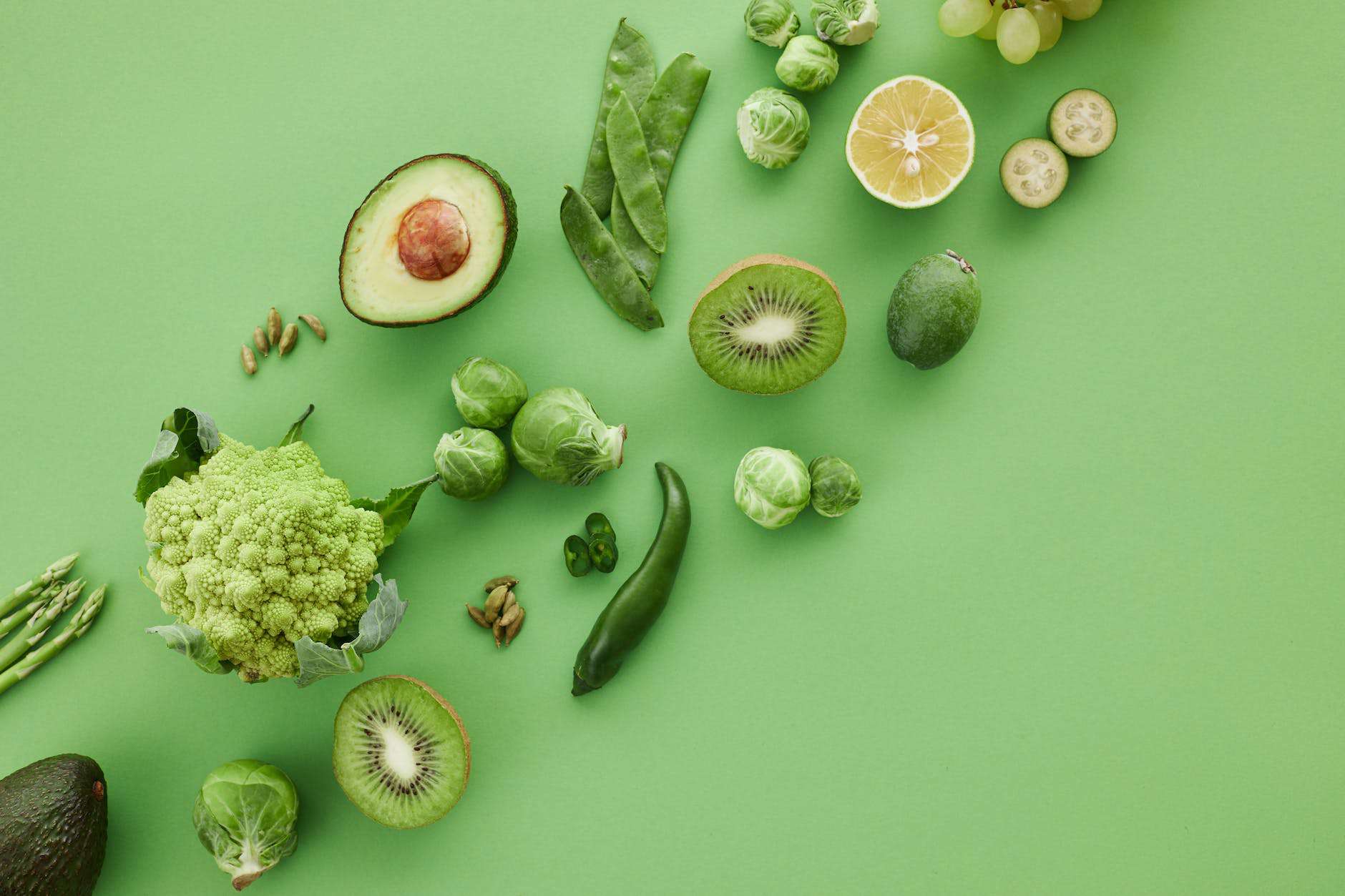
Carbohydrates are often the main source of energy for your body, and they can come from whole grains, fruits, vegetables, and dairy. There are two types of carbohydrates: simple and complex. Simple carbohydrates are made up of one or two sugar molecules, while complex carbohydrates are made up of longer chains of sugar molecules. Complex carbohydrates provide a longer-lasting source of energy and are generally healthier than simple carbohydrates.
Fat
Fat is a key component of a healthy diet, and helps your body absorb certain vitamins, including vitamins A, D, E, and K. Eating too much fat can cause weight gain and increases in cholesterol levels. It's best to limit fats that are high in saturated and trans fats, such as butter and lard, and to focus on more heart-healthy fats, such as monounsaturated and polyunsaturated fats found in olive oil, avocados, and fatty fish.
Benefits of a Keto Diet
Although it may take some time to adjust to the ketogenic diet, many people are able to experience numerous health benefits from following this way of eating. Weight loss is one of the most common benefits experienced on a ketogenic diet. This is due to the body burning stored fat for energy when carbohydrates are low and the body enters a state of ketosis. Additionally, following a ketogenic diet may help to improve cholesterol levels, as well as blood sugar control.
A ketogenic diet also helps to reduce inflammation, a major factor in many chronic diseases. In addition, it has been linked to improved brain function, including improved concentration and focus.
Finally, following a ketogenic diet can help to improve overall health, mental clarity, and well-being. People who have followed the keto diet have reported increased energy levels, as well as a reduction in cravings and hunger.
Types of Keto Diets
A ketogenic diet is an eating pattern that consists of high amounts of fat, moderate protein, and very low levels of carbohydrates. There are different types of ketogenic diets that people can follow:
- Standard Ketogenic Diet (SKD) – This type of ketogenic diet is the most common and consists of eating 75% fat, 20% protein, and 5% carbohydrates.
- Targeted Ketogenic Diet (TKD) – This type of ketogenic diet involves consuming carbs around a specific workout or activity. It is typically used by people who are involved in endurance activities, such as long-distance running or cycling.
- Cyclical Ketogenic Diet (CKD) – The cyclical ketogenic diet is a form of the standard ketogenic diet that involves alternating between periods of eating a high-carbohydrate diet and a low-carbohydrate diet.
When following any of the ketogenic diets, it’s important to eat a range of healthy fats, proteins, and carbohydrates. Each person needs to adjust their macronutrient intake to meet their individual needs and goals.

Foods to Eat on Keto
Following a ketogenic diet can be a healthy and effective way to improve your health, lose weight, and reduce your risk of some chronic diseases. But what kinds of food should you be eating on this type of diet? The good news is that there are lots of delicious foods that fit into the keto diet plan!
Vegetables should be the cornerstone of your ketogenic diet. These provide essential vitamins, minerals, fiber, and antioxidants. Examples of keto-friendly vegetables include leafy greens, broccoli, cauliflower, zucchini, mushrooms, and peppers. Try to aim for at least four servings of veggies each day.
Nuts are a great source of healthy fats and protein for people on a keto diet. Choose from nuts like almonds, macadamias, pecans, and walnuts. Just be sure to watch your portion size since nuts are high in calories.
Healthy fats are a must for the keto diet. Choose fat sources like olive oil, avocado, coconut oil, and ghee. These provide essential fatty acids, help keep you full and can also help with weight loss.
The ketogenic diet can provide excellent health benefits and can even help you hit your weight loss goals. By understanding what types of foods work best for this type of diet, you can maximize the benefits and make it easier to stick to the plan.
Foods to Avoid on Keto
When following a ketogenic diet, it is important to avoid certain foods, such as those that are high in sugar and starch. These specific types of food can increase blood glucose levels, leading to an increase in insulin levels. This will ultimately interfere with the body's ability to enter into ketosis and remain in a fat-burning state.
The following list includes some of the most common foods to avoid while on a ketogenic diet:
- Sugary foods, such as candy, ice cream, and soft drinks
- Starchy foods, such as potatoes, rice, and bread
- High carb fruits, such as bananas, oranges, and apples
- Grains, such as wheat, barley, and oats
- Legumes, such as beans, lentils, and peas
It's also important to limit your intake of other processed foods, such as fast food, frozen dinners, and packaged snacks.
Keto Diet Meal Planning
Meal planning is an essential part of following a ketogenic diet. While it may seem counterintuitive at first, eating fewer carbs and a high amount of healthy fats actually helps to support your overall health and well-being. By following some basic meal planning tips, you can easily create nutritious, delicious meals without feeling deprived or overwhelmed.
The most important simple tip for meal planning is to plan ahead. Having an idea of what you will be eating for the week can help to reduce stress, save time, and keep you on track with your goals. Take some time to consider what foods you will include in each meal, and how those meals will fit into your overall diet. Make a grocery list and stock your kitchen with all the necessary ingredients, so you’re already prepared when it’s time to cook.
In addition to planning ahead, make sure you’re including a variety of nutrient-dense foods in your meals. On a ketogenic diet, it’s best to focus on eating healthy fats, moderate amounts of protein, and low-carb vegetables. A variety of foods from these categories can help to keep you feeling satisfied and your meals interesting. Here are some delicious recipes you can include in your meal plan:
- Baked salmon with parmesan and spinach
- Avocado & egg breakfast bowl
- Turkey zucchini meatballs
- Salad with grilled chicken, walnuts, and feta
- Oven-roasted Brussels sprouts with bacon
It’s also helpful to have a few easy snacks on hand to help avoid hunger between meals. Healthy keto-friendly snacks can include nuts, string cheese, boiled eggs, and veggies sticks. Additionally, meal-replacement bars and shakes can make a quick snack option, just be sure to check the label to make sure the ingredients are keto-friendly.
Overall, a well-planned ketogenic diet can be incredibly satisfying and enjoyable. With a little practice and preparation, you can easily create tasty and nutritious meals to help you reach your health and weight loss goals!
Supplements for a Ketogenic Diet
Following the ketogenic diet can be tricky, especially when it comes to getting all the necessary vitamins and minerals in your daily diet. To ensure you receive adequate nutrition while following the ketogenic diet, it’s important to consider using supplements. Here are some of the most common supplements used on a ketogenic diet:
- MCT Oil: MCT stands for medium-chain triglycerides. MCT oil is derived from coconuts and can be added to meals or drinks. It helps provide energy and can help with ketosis.
- Electrolyte Supplements: Electrolytes are essential for maintaining balance in the body and they are often depleted on the ketogenic diet. Taking electrolyte supplements such as potassium, magnesium, calcium, and sodium can help you avoid common side effects of the ketogenic diet, such as fatigue and headaches.
These are just two of the most common supplements recommended for people on a ketogenic diet. Other supplements such as omega-3 fatty acids and probiotics may also be beneficial. However, it’s always best to speak with your doctor before starting any type of supplement.
Potential Risks with a Ketogenic Diet
A ketogenic diet can provide numerous health benefits, however there are potential risks associated with the diet as well. The most common ones are nutrient deficiencies and dehydration. Nutrient deficiencies happen when you do not get enough vitamins, minerals, and other vital nutrients from your food. Dehydration is a lack of water in the body and can cause fatigue, headaches, and dizziness.
Nutrient deficiencies may occur if you do not consume enough variety of foods while following a ketogenic diet. It's important that you include a wide selection of healthy foods, such as leafy greens, nuts, seeds, and low-carb vegetables. It is also important to focus on adequate hydration and to add electrolytes such as sodium, potassium, and magnesium into your diet.
Dehydration can also be a risk of a ketogenic diet, as the body needs more water than normal to process the high fat content of the diet. It is important to make sure you are drinking plenty of water throughout the day and adding electrolytes into your diet to help prevent dehydration.
Although there are potential risks associated with a ketogenic diet, they can easily be avoided by making sure you are eating enough variety of foods, drinking plenty of water, and including electrolytes into your diet. By taking these simple precautions, you can reap the health benefits of a ketogenic diet without taking on any risks.
Bottom Line
The ketogenic diet can be a great way to improve your overall health and wellness, but it’s important to remember that it should be done carefully. The diet should be tailored to your individual needs, and it’s important to understand the potential risks as well. A healthy lifestyle balance, including regular physical activity, is essential for successful weight loss and improved health. Consult with your doctor before starting any kind of new diet.
By understanding the basics of the ketogenic diet, including the benefits, foods to avoid and include, and possible risks, you can create a safe and balanced diet plan for yourself. Meal planning is key to success, as well as incorporating beneficial supplements. With some patience and dedication, you can reap many of the benefits that the ketogenic diet can offer.
Frequently Asked Questions about a Ketogenic Diet
If you are considering starting a ketogenic diet, there are certain questions you might have. Here are some of the most frequently asked questions and their answers to give you an idea of what the diet involves.
What is a Ketogenic Diet?
A Ketogenic Diet is a low-carb, high-fat diet that is designed to help the body burn fat rather than carbohydrates for energy. It has been used to successfully treat a variety of medical conditions, such as obesity, type 2 diabetes, and epilepsy.
What are the potential health benefits associated with a ketogenic diet?
Potential benefits of a ketogenic diet may include weight loss, improved cholesterol levels, reduced inflammation, improved blood sugar control, and improved mental clarity and cognitive performance.
What kinds of food can I eat on a Ketogenic Diet?
Foods to include on a ketogenic diet include leafy greens, cruciferous vegetables, nuts and seeds, meats, fish, eggs, dairy, and non-starchy vegetables such as broccoli, cauliflower, pickles, tomatoes, and peppers.
What kinds of food should be avoided on a Ketogenic Diet?
The most important foods to avoid on a Ketogenic Diet are those that are high in carbs and sugar. These include starchy vegetables, grains, and sugary fruits and drinks.
How long do I need to stay on a ketogenic diet?
That depends on your individual goals. Most people stick to the diet for 3-6 months as part of a weight loss or health management plan. However, if you are looking to make lifestyle changes, you may choose to stay on the diet for longer.
Are there any potential risks associated with a ketogenic diet?
Potential risks associated with a ketogenic diet include an increased risk of nutrient deficiencies, dehydration, and digestive issues. Before starting a ketogenic diet, it is important to talk to your doctor or healthcare provider.
What happens if I cheat?
Cheating on a ketogenic diet is not recommended since it can lead to high blood sugar levels. If you do slip up, it is important to get back on track as soon as possible – focus on eating healthy and make sure to get back into ketosis quickly.
What dietary supplements may help to support a ketogenic diet?
Supplements that may help to support a ketogenic diet include MCT oil, exogenous ketones, electrolyte tablets, and fiber supplements.
Do I need to count calories?
Not necessarily. While counting calories is useful in some instances, it is not essential to follow a ketogenic diet. You can focus on eating healthy fats, proteins, and vegetables, and maintain a consistent calorie intake.
What types of ketogenic diets are there?
There are several different types of ketogenic diets, including the Standard Ketogenic Diet, the Cyclical Ketogenic Diet, the Targeted Ketogenic Diet, and the High-Protein Ketogenic Diet. They vary in terms of macronutrient ratios and in the amounts of fats, proteins, and carbs consumed.

